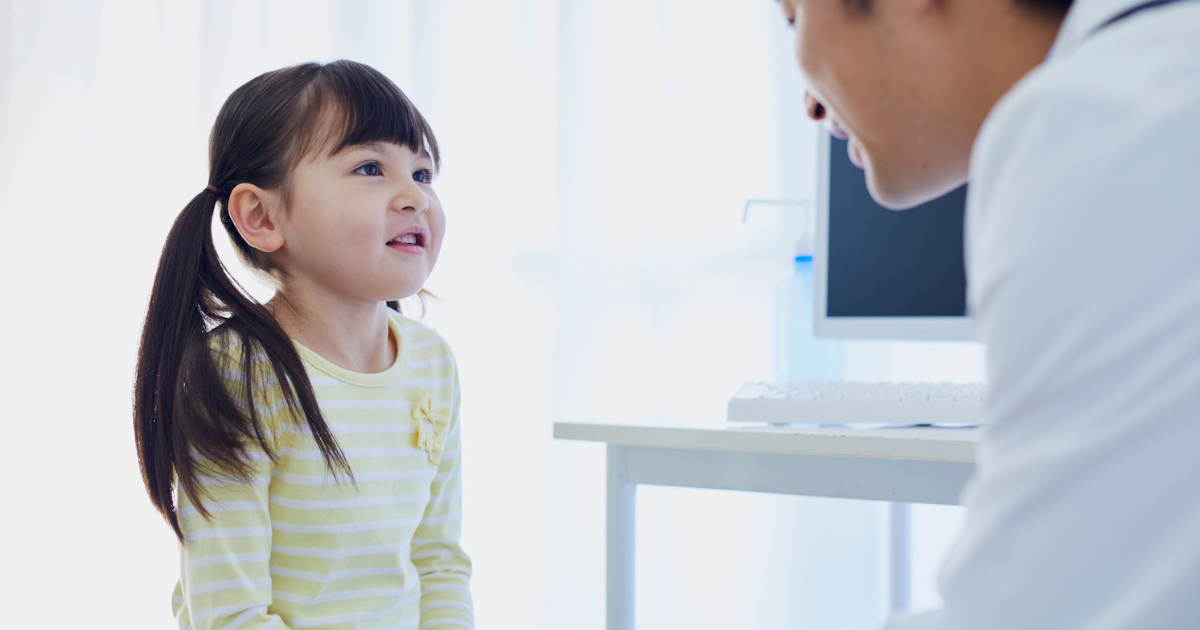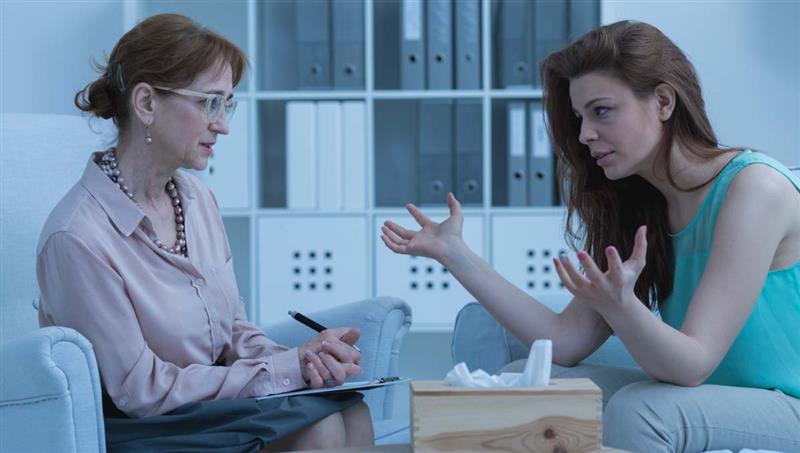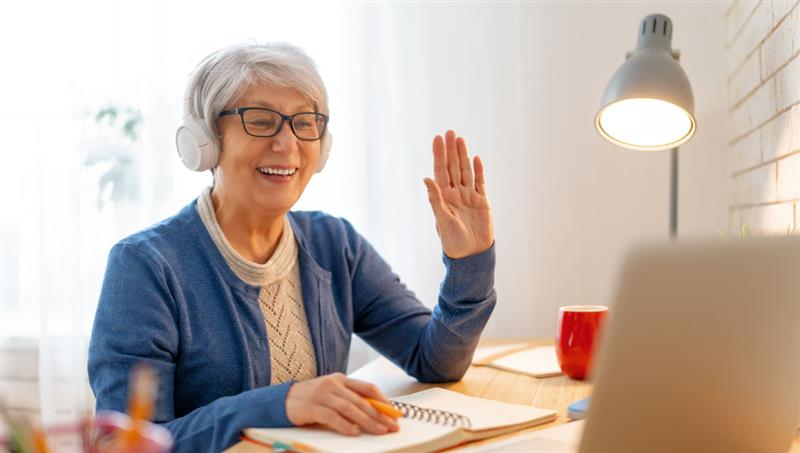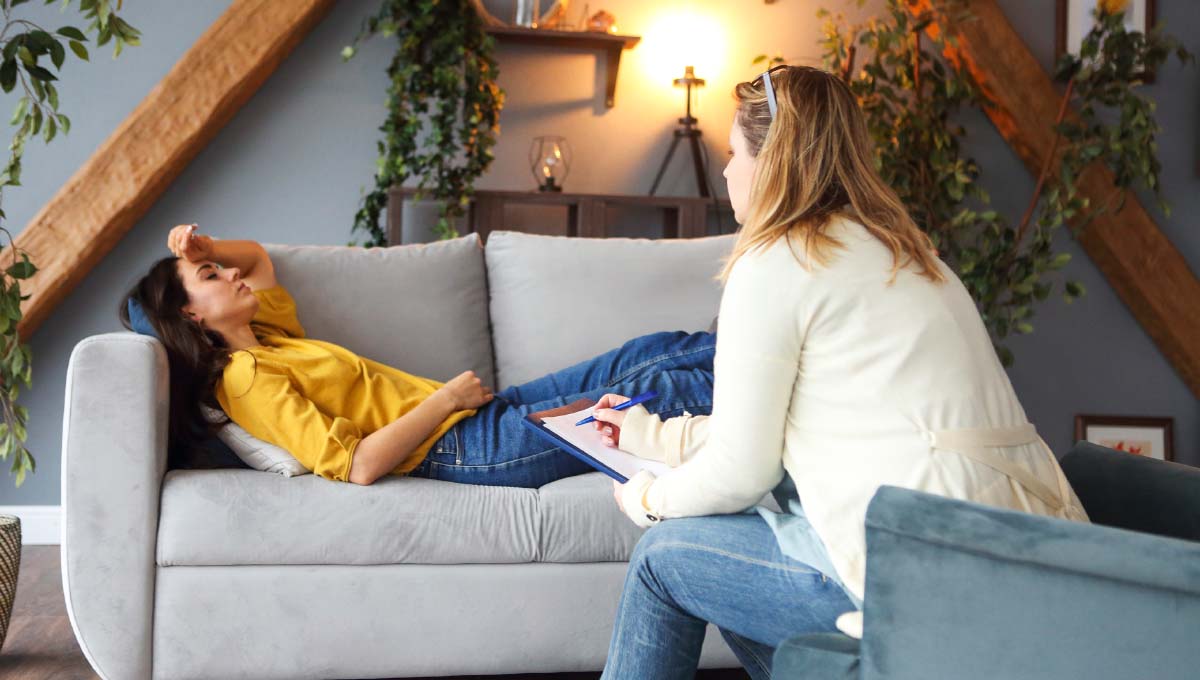Have you noticed that your child is always anxious and nervous? Well, then, do not overlook it because anxiety in children impacts emotional development, education, and routine. Anxious children can be overly concerned about school, friends, or even simple routine alterations, which results in difficulties with sleep, moodiness, and physical ailments such as headaches or stomach aches. Similarly, the early identification is crucial since anxiety without treatment may affect confidence and social development. At MAVA Behavioral Health, we provide professional assessment and individualized treatment programs, such as safe medication management. We have in-clinic and telehealth availability to make sure that the child gets compassionate and effective care at the appropriate time.
Generalized Anxiety Disorder in Children
Generalized Anxiety Disorder (GAD) in children is an illness in which a child is overly worried about things in life that are normal, such as schooling, friends, and family. Speaking of an example, such issues are usually more significant than the actual matter and may occur almost daily. Meanwhile, a GAD child can be anxious, sleepless, or tired because of endless what-ifs that go through their head. In addition, they are also able to point out headaches, stomach aches, or muscle tension without any medical reason.
As a result of such challenges, the condition can affect the manner in which a child studies, plays, and spends time with family and friends. The support at the initial stages is very helpful. Communication with a mental health specialist, use of relaxation exercises, and performing a routine can be of great assistance with the collaboration of both parties.
Signs of Anxiety in Children
Here are the symptoms of anxiety in children:
- Overthinking about school, friends, or everyday activities.
- Uneasy and cannot sit still.
- Nightmares, or waking up frequently.
- Headaches, stomachaches, and tension in the muscles.
- Sensibility or high moodiness.
- Problem with concentration or attention to work.
- Alterations of the appetite, either too little or too much to eat.
What Causes Anxiety in Children
The causes for anxiety in children are as follows:
- Anxiety or other mental health family history.
- Picking on or problems with friends at school.
- Excessively critical/controlling parenting style.
- Long-term medical or persistent health problems.
- Alterations in the routine or major shifts.
- Brain chemistry and stress response genetic factors.
Impact of Performance Anxiety in Children
The nervousness of the children before the tests, before the sports events, or performances, as a result of the performance anxiety, could make the children actually nervous. Therefore, they can be afraid of making a mistake, or they can be afraid of other people criticizing them. Such pressure may be manifested physically through stomachache, headache, or sweating/rapid heartbeat. Thanks to this very feeling, they are able not to do things that they would tend to like, or not to be experimental.
In addition, the uncertainty of a child due to the constant sense of being evaluated at the moment of the performance can also, in the long run, influence their work or hobby. It can make them feel that they are not good, and this can degrade their self-esteem. Otherwise, it may trigger other, more serious problems, such as the constant feeling of anxiety or depression. The parents and teachers can assist the children in feeling less worried and more at ease with the kind encouragement and understanding.
How To Help Kids with Anxiety?
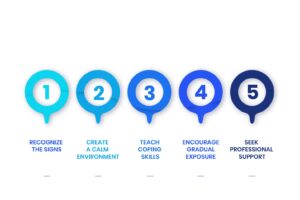
1. Recognize the Signs
The first is that you have to pay attention to the changes in the behavior of your child and record the changes that include excessive worry, insomnia, stomach aches, and irritability. Such are typical symptoms that are displayed whenever the children are too much to handle and cannot express their fears properly. Notification patterns like picking or skipping school or socialization.
2.Create a Calm Environment
A stable and calm environment at home can reduce the stress levels of nervous children. Please provide them with the environment in which they feel that they are being heard and understood without being judged. Quit watching the news that causes stress or quarrelling with others. Get them to open up and talk about their feelings freely and assure them that they are not alone.
3.Teach Coping Skills
Add relaxation methods, like deep breathing, mindfulness, or stretching. Train these techniques alongside each other such that your child feels free to apply them at times of stress. Make them recognize good thoughts to substitute anxious thoughts. Write through artistic means, such as drawing or journaling, to show emotions. Regular training creates emotional conviction.
4.Encourage Gradual Exposure
Do not allow your child to get out of anxiety-causing situations fully. Be encouraging and do not pressure, since this aggravates anxiety. Progressive exposure teaches children to have the capability of dealing with tough situations. This, in the long run, boosts confidence and removes fear.
5.Seek Professional Support
When anxiety becomes a problem in daily life, it is a good idea to communicate with a mental health specialist. Professional assistance provides the means of dealing with anxiety in children and parents.
How To Treat Anxiety in a Child Naturally?
Here are some of the tips to reduce anxiety naturally:
- Set up a process of security and stability.
- Promote physical activity and play.
- Reduce screen time, particularly before going to sleep.
- Eat in moderation fruits, vegetables, and whole grains.
- Promotional non-judgmental communication.
- Make bedtime a relaxing time.
- Develop good and healthy coping behaviors.
- Introduce activities such as drawing, journals, or music.
- Build trust and comfort by taking good time with family.
Anxiety In Children Treatment
1. Psychiatric Evaluation
Psychiatric assessment can determine the exact anxiety stimuli and general health requirements of the child. This can also involve talking to parents and teachers, psychological assessment, and watching the way the child responds in varying circumstances. Early screening would make sure that the treatment is vital before the anxiety can impact learning, friendships, or daily routine.
2. Anxiety Medication for Kids
In case the anxiety is intense, physicians can prescribe safe and child-friendly drugs. These drugs are used to lessen severe symptoms so that the child will feel more relaxed and attentive, and resume therapy or other interventions. Parents are also significant because they report any changes in the mood or behavior of their child.
3. Lifestyle Changes
Mindfulness, yoga, and deep breathing are some of the relaxation methods that can be used to teach children stress management. Believing in hobbies, outdoor activities, and good family time creates a sense of confidence and strength. The positive reinforcement, consistency, and a positive home environment make the children feel safe as they cope with their anxiety in a natural manner.
To Sum Up
In conclusion, the anxiety in children may impair their mood, behavior, and performance in their day-to-day activities, and thus, an intervention is necessary at the earliest. At MAVA Behavioral Health, we are offering a full-service approach to childhood anxiety treatment in the form of customized medication management. Families will have the option of either convenient in-clinic visits or safe telehealth visits, which will guarantee flexible access to care as per the schedule of the family.
Through our caring attitude and constant checkups, children are given the encouragement they require to overcome fears and develop confidence. We also take parents through the process, providing education on coping skills and lifestyle changes that supplement medication. We aim to assist children in restoring the balance, paying better attention at school, and training healthy emotional capabilities from a long-term perspective.
FAQs
How can I help my child with anxiety?
You can support your child by listening to their worries, maintaining a calm routine, and encouraging them to express feelings. Provide reassurance without dismissing fears, and involve a mental health professional if symptoms persist.
How to treat anxiety in children?
Treatment often includes therapy, lifestyle changes, and medication when necessary. At MAVA Behavioral Health, psychiatrists create individualized medication plans and offer both in-clinic and telehealth care to ensure effective support.
What are the symptoms of anxiety in children at an early age?
Children can be overly worried, irritable, have difficulty sleeping, complain of physical ailments such as stomach pains, or resist doing their daily chores. Early diagnosis of these signs permits early treatment to avoid the aggravation of symptoms.
Why is professional treatment essential for children?
Professional attention assists in detecting underlying causes, safe medication management, and coping skills. Early intervention enhances emotional health, academic achievement, and quality of life, minimizing the effects in the long term.
What is the process of a psychiatric assessment of child anxiety?
A psychiatrist examines the symptoms, past medical records, and behavioral patterns and directs the therapy or medication, or both. This is a comprehensive evaluation with a proper action plan to effect successful, lasting relief.
